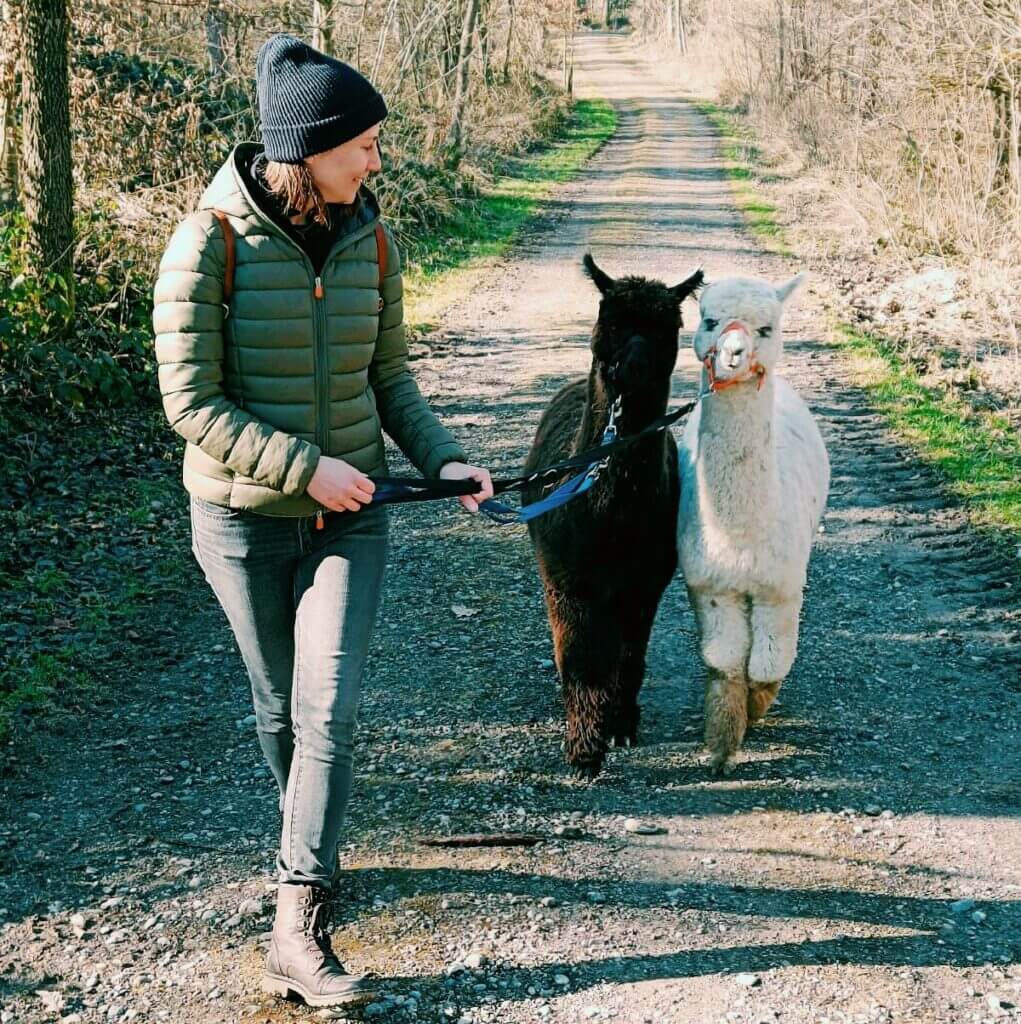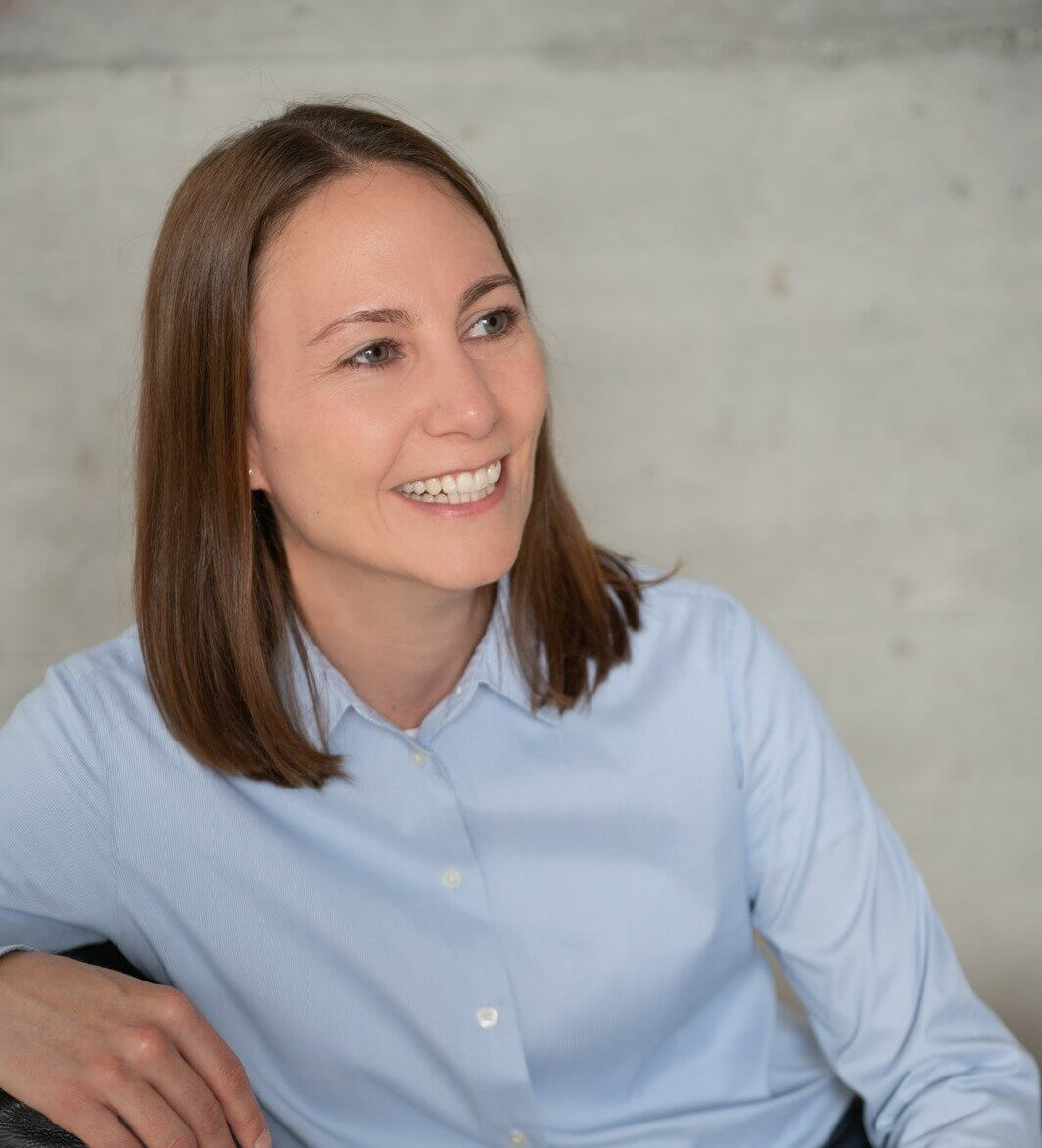Dr Amanda Hirsch-Hüsler is one of our valued Consultants in Operations. In her Consultant Spotlight below, she talks to us about her pathway from academia to industry and her passion for technology and travel.
When did you realise you wanted to work in medical?
Even as a teenager in high school, I knew I wanted to pursue a career in Biomedical Engineering. At an early stage I had already checked out which areas of study I should focus on to facilitate this path. Materials Science was one of these areas that sounded versatile and interesting, so after leaving school I decided to study this at ETH Zurich.
I’ve always wanted to help people. But I don’t like to see blood so I could never have been a medical doctor! I also always loved science and technical challenges. Materials Science offered the chance to develop skills that would allow me to improve the lives of patients, whilst learning all about cutting edge technologies and working for great companies.
During my studies I had the opportunity to complete a six-month internship in R&D product development at Biotronik. It was great to be able to gain industry experience whilst studying.
After developing a keen interest in Materials Science during my bachelor’s, I decided to stay on this path for my master’s at ETH, as a change in direction to Biomedical Engineering would’ve involved less hands-on time in the lab.
Your master’s at ETH led you to Australia. How did you find the move down under?
During my master’s I decided I wanted to move abroad, so I enrolled at the University of South Australia to write my thesis which focussed on antibacterial surface modification via plasma polymerisation with the aim of elucidating the mechanism of antibacterial action. I was hoping it’d be a good chance to improve my English, but as it happened both my professor and the PhD student who taught me were Swiss!

Australia was really cool. Even though I was there during winter and didn’t experience a really hot summer, I still saw a lot of the country. I visited Adelaide, Melbourne, and Sydney, and managed to fit in some snorkelling in Cairns. A stand-out trip involved flying with a friend to Alice Springs, where we hired a cheap van and drove via Uluru down to Adelaide. The five-day trip required a lot of driving, but it was amazing to experience how vast the country is, and to see the diverse range of animals in the outback.
The University of South Australia offered me a PhD spot during my time there. But whilst Australia is lovely, it’s too far away from family and friends. So instead, through a contact I made via my professor, I moved to England to do my PhD at the University of Nottingham.
I really enjoyed my time in the UK. I loved the relaxed pub culture, the spontaneity, and the regular socialising with friends. From a study perspective it was an eye-opener though, as budgets are far more limited for research. In hindsight this wasn’t such a bad thing, as it taught me how to plan and budget my research more stringently – which helps me in my professional roles now (and even my personal life!)
Why did you decide to do a PhD?
I couldn’t really imagine going directly into industry after my master’s. From my perspective, entering industry at that point meant potentially spending the day at the computer or answering phones, whilst a PhD offered me three more years in a lab, exploring my own ideas.
My PhD topic focussed on exploring the use of inkjet printing and microfluidics to generate uniform polymer microparticles for bacterial cell attachment control. At the time 3D printing was quite a novel technique so the research was interesting. My results were positive at first, but when I found that I couldn’t progress much further, I began looking for an alternative technique.
Doing my PhD in England meant that I was a bit limited by the three-to-four-year time span for completion, and it was this time pressure that pushed me to explore my options further afield. As part of my literature review, I had come across a group at the Tokyo Institute of Technology that was using an alternative technique to produce microparticles. So, I wrote to the group’s professor expressing my interest in an exchange, successfully applied for pre-doctoral funding, partook in some last-minute Japanese lessons, then off I went to Tokyo for three months.
What did you learn from your experience in Japan?
My pre-doctoral fellowship in Japan remains a career highlight for me because it was one of the first times where I really took control of a key life event. I recognised that I needed to find a new technique to progress my research, organised the exchange independently, and with the results gained using the new technique I finished my PhD and graduated.
Keeping my focus on my work in a new country and persevering with working 12 hours a day, six days a week to get the results I needed was a challenge, but the outcome was worth it. As well as the personal achievement, on a broader scale, my technique has since been transferred from the Tokyo Institute of Technology to the University of Nottingham, with both institutions utilising it for further research.
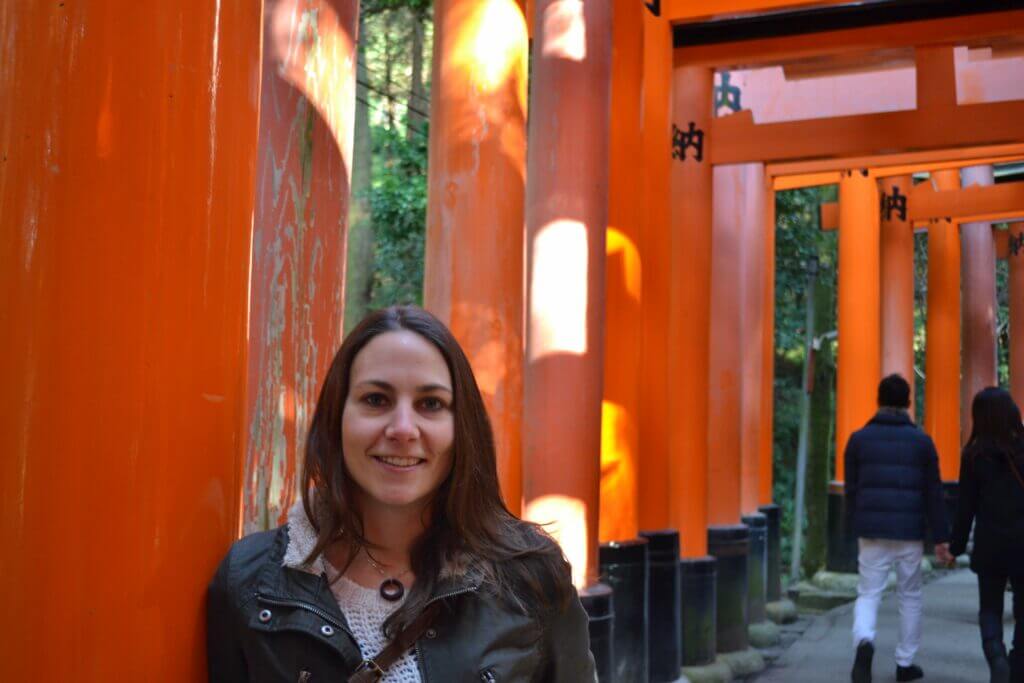
I really love to travel so it’s been great to have had opportunities to see different countries through my studies. I would definitely go back to Japan on vacation. The people are so friendly, the food is just amazing, and everything is so organised!
I found the Japanese to be hard workers – similar to my Swiss colleagues. This contrasts a little with my experience in Australia where I found people more relaxed – which certainly isn’t a negative – they just seem to prioritise social time a bit more. I think combining elements from both cultures provides a happy balance.
Tell us about your move from academia to industry…
After my PhD I wanted to return to a German speaking area as my English hadn’t progressed enough to feel comfortable speaking socially. Feeling ready to join the MedTech industry, I returned to Switzerland and started a role as a Product Development Engineer at Biotronik.
In this role I optimised the assembly manufacturing process for the next generation of coronary drug-eluting stent, with a focus on process optimisation and cost reduction. This first role was key in teaching me about balancing a “great idea” with time, quality, sustainability and cost. After a year I side-stepped into a Process Engineering role at the company to gain more responsibility.
My fourth and last year at Biotronik included several interesting projects. One example that stands out for me was the development of a new coating process for bioresorbable scaffolds. I was leading the development of the new coating treatment and COVID hit mid-project, meaning we had to achieve our goals within much shorter working hours.
This project also presented one of my first challenges in people management, in terms of bringing the team together by solving some interpersonal issues. My travel and exposure to different cultures really helped me with this. In Switzerland we tend to have colleagues from so many different cultures, so being able to navigate the different ways in which people communicate depending on their cultural background or the language they speak certainly helps.
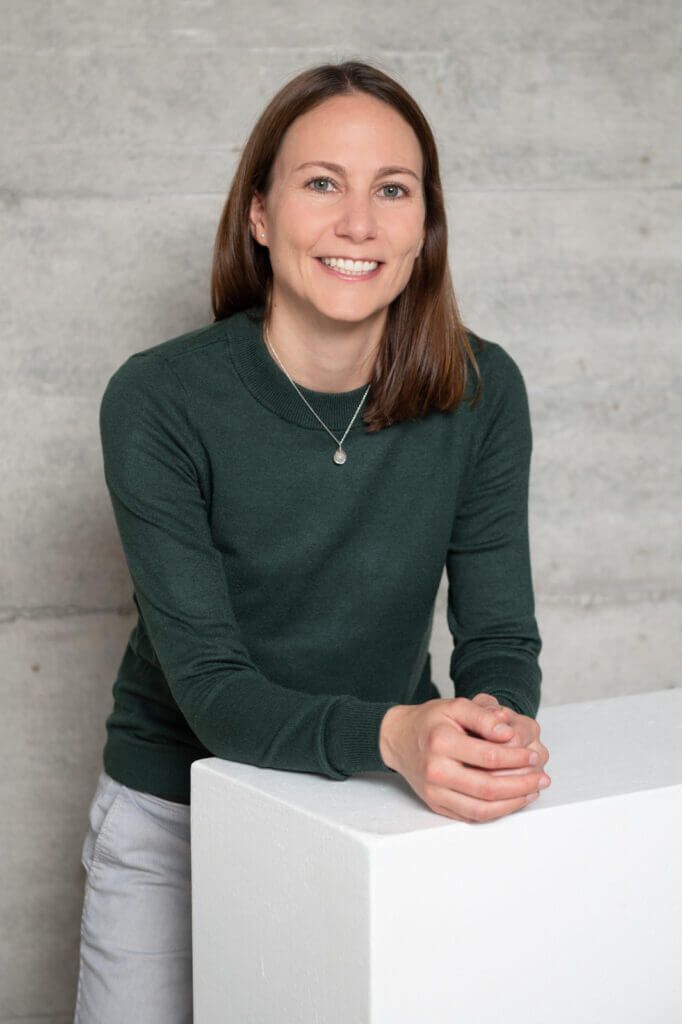
How did you find yourself at Congenius?
For me it was always clear that I wanted to be a consultant some day because I enjoy continuous learning. I like to widen my horizon with a broad range of topics rather than focussing on one area as a specialist. Consulting offers the chance to work on different topics, in different industries, with different people.
When I saw the job advert from Congenius for a role offering an opportunity in process and quality engineering, I was excited at the prospect of being able to transition from being a Process Engineer to a Quality Engineer. And so, I ended up at Congenius!
You talk about enjoying variety – is this something that transcends your professional life?
Absolutely – I love trying out new things, especially when it comes to sports. As a child I remember my mum encouraging us to be sporty. I think this was a good thing, as whether it was playing football or tennis, or doing gymnastics, you learnt at a young age how to move your body which of course helps you as you get older. Getting involved in sport is also a great way to meet different types of people.
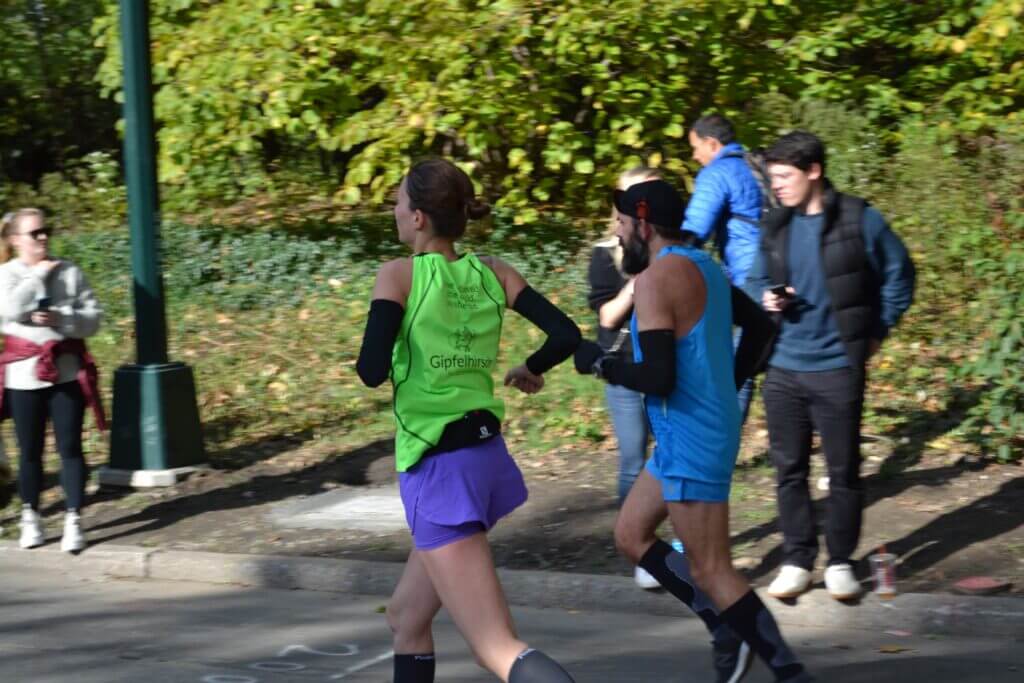
Two years ago, I achieved a personal life goal of running a marathon. As often happens, amongst some friends having some beers one evening, I mentioned that I had always wanted to run a marathon, and one particularly athletic and enthusiastic friend held me to it. So, we signed up for the 2019 New York Marathon as a group, and after a year of training, running four times a week and learning a lot about food and drink preparation to avoid hitting the “wall”, we did it! The atmosphere on the day was so exciting – lots of people had come out to support the runners, and they all called out enthusiastically to keep us going. When I think back though, I don’t quite know how I ran the whole 42km!
Aside from running, when I lived in Nottingham, I tried out Kung Fu and also swing dancing – even though I’m not much of a dancer. I don’t quite have “two left feet” but I do struggle to hear the beat sometimes! It was actually at swing dancing where I met my now husband, Matthias…
After attending a “Jitterbug” party with a German friend where I’d seen how artistic and gymnastic swing dancing was, I decided to go along to a beginner’s class at the university. Initially I had the impression that the dance genre didn’t require much rhythm, but I was quickly proven wrong during the first class! Matthias was the stand-in teacher. After his repeated invitations to go for after-class drinks with the group, I eventually agreed – and six years later we got married. I guess you could say his persistence paid off!
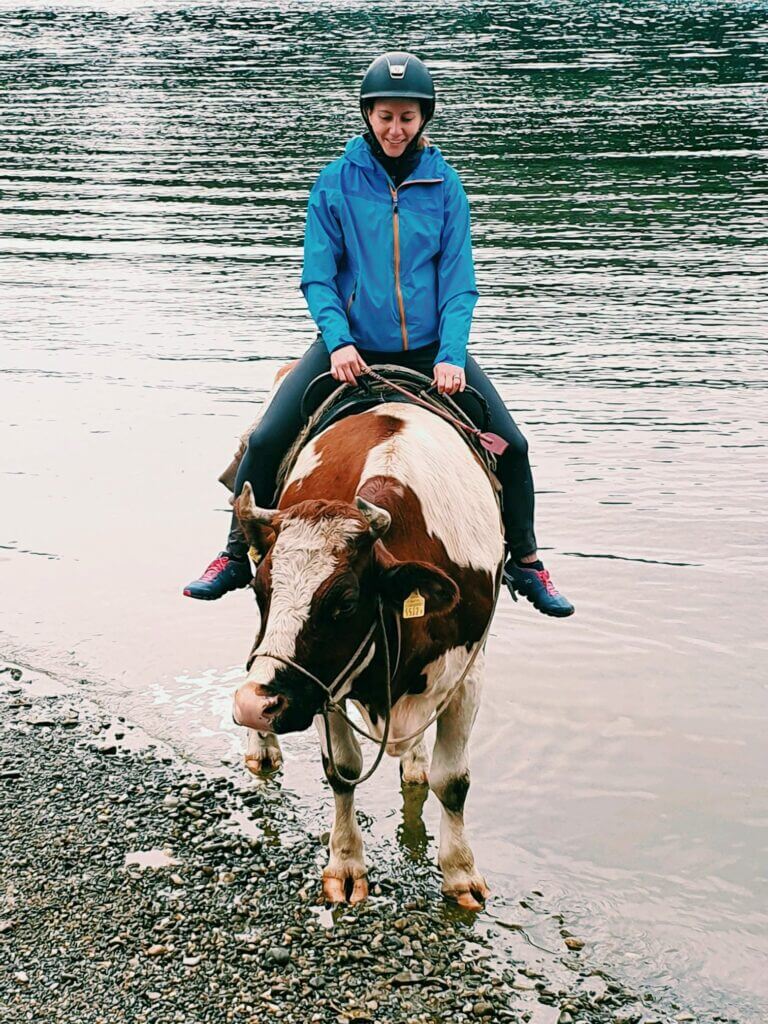
Having worked in the MedTech industry for almost five years now, what kind of challenges do you think we’ll face within Operations in the near future?
Development time for getting products first to market is becoming shorter and shorter. And along the way there’s pressure for products to become cheaper, more sustainable, and easier to use. This means that digitalisation will continue to progress in the coming years, but also there’ll be more pressure to outsource product manufacture to minimise liabilities or to scale-up production quickly.
Quality control then becomes a challenge when products are delivered via multiple suppliers within a pressurised time scale – COVID has shown us this in terms of PCR / lateral flow test development for example.
Reusable materials present an interesting topic within diagnostics. Say for example, you have a consumable where you want to test human serum. The plate is contaminated through use, so an extensive cleaning process is required to be able to re-use the plate (which is very expensive). Re-use also presents a risk from a results accuracy perspective.
So, as we strive to use more sustainable materials, well-evaluated product innovation will be key. Take the plate example: perhaps a small non-reusable but recyclable insert could be used on the plate to make the majority of the product reusable. But then you must weigh up the cost and sustainability of producing this extra inset; for example – does the environmental impact of producing the extra inset actually negate the rest of the product being made reusable? I’m excited to see how emerging technologies will facilitate effective innovation in this space over the coming years.
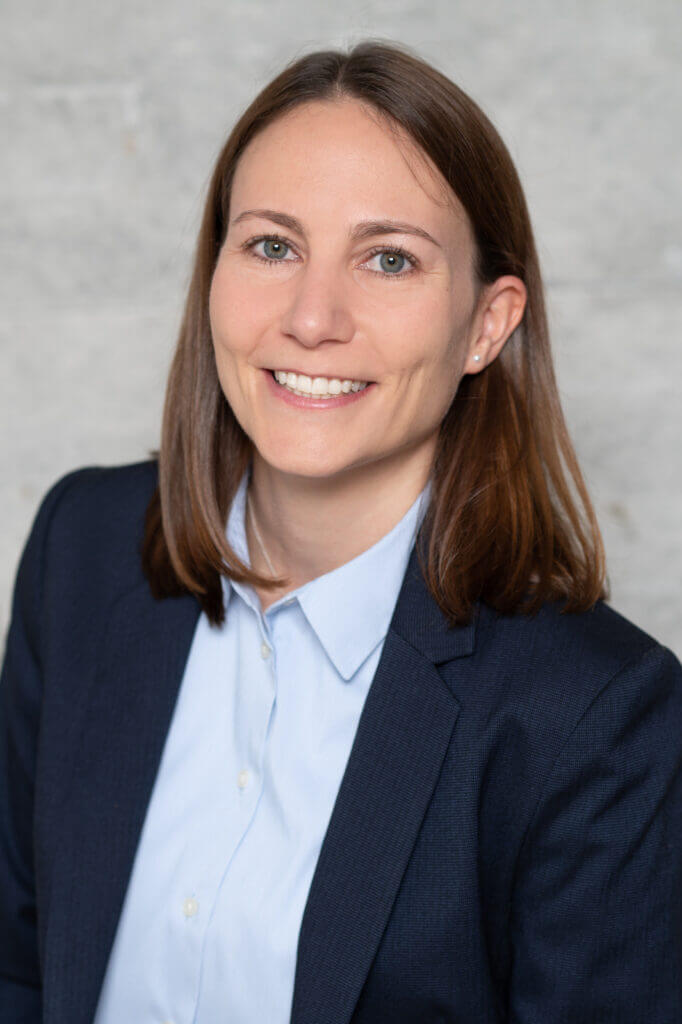
On a more day to day level, why do you continue to work in the medical field?
I have a passion for cutting edge technologies. MedTech is one of the fastest progressing industries and the constant urgency to save lives will maintain this speed of development. The fact that you can now 3D print a heart for example is just fascinating – I really don’t think we’re far away from cloning!
Aside from the technology aspect, when you work in MedTech you see that your work matters. At the moment, I work as a Product Quality Engineer in diagnostics at Roche. During my daily work, I can directly improve the quality of products for the consumer, ensuring results accuracy. And by optimising our supplier processes, I can help to make the product as affordable as possible for the end user.
What inspires you from a professional perspective?
Strong female leaders – especially in the engineering and technical industries. In my experience I see these industries are still very male dominated, and it’s still the case that women in these industries must put in extra effort to excel. The possibility or reality of pregnancy can often limit a woman’s progression to leadership. Unfortunately, old-fashioned belief systems are still present – for example that it’s the woman’s role to be at home when a child is sick.
To move forward, I think that maternity and paternity leave should be split equally, or at the discretion of the couple, becoming “Parents Leave” that can be shared between co-parents. Companies should continue to push more to address the gender pay gap, and women in leadership positions should have the courage to lift other women up (as and when they’re the best person for the job of course). Government and large industry need to work together to ensure that equality becomes a fundamental part of every business strategy.
Finally, when you come to retire, what kind of impact do you hope to have made?
For the coming years, I would just like to keep broadening my skills within MedTech. I’d like to keep contributing to making products more usable and more affordable to help improve lives.
Then when the time comes to leave medical, I’d like to run something of my own – perhaps an Alpaca farm. I’d love to work with animals in some way, creating social experiences that help with people’s wellbeing – like Alpaca hiking, or Alpaca yoga. Whatever I end up doing, as long as I can have a positive effect on people’s lives, I’ll be happy.
